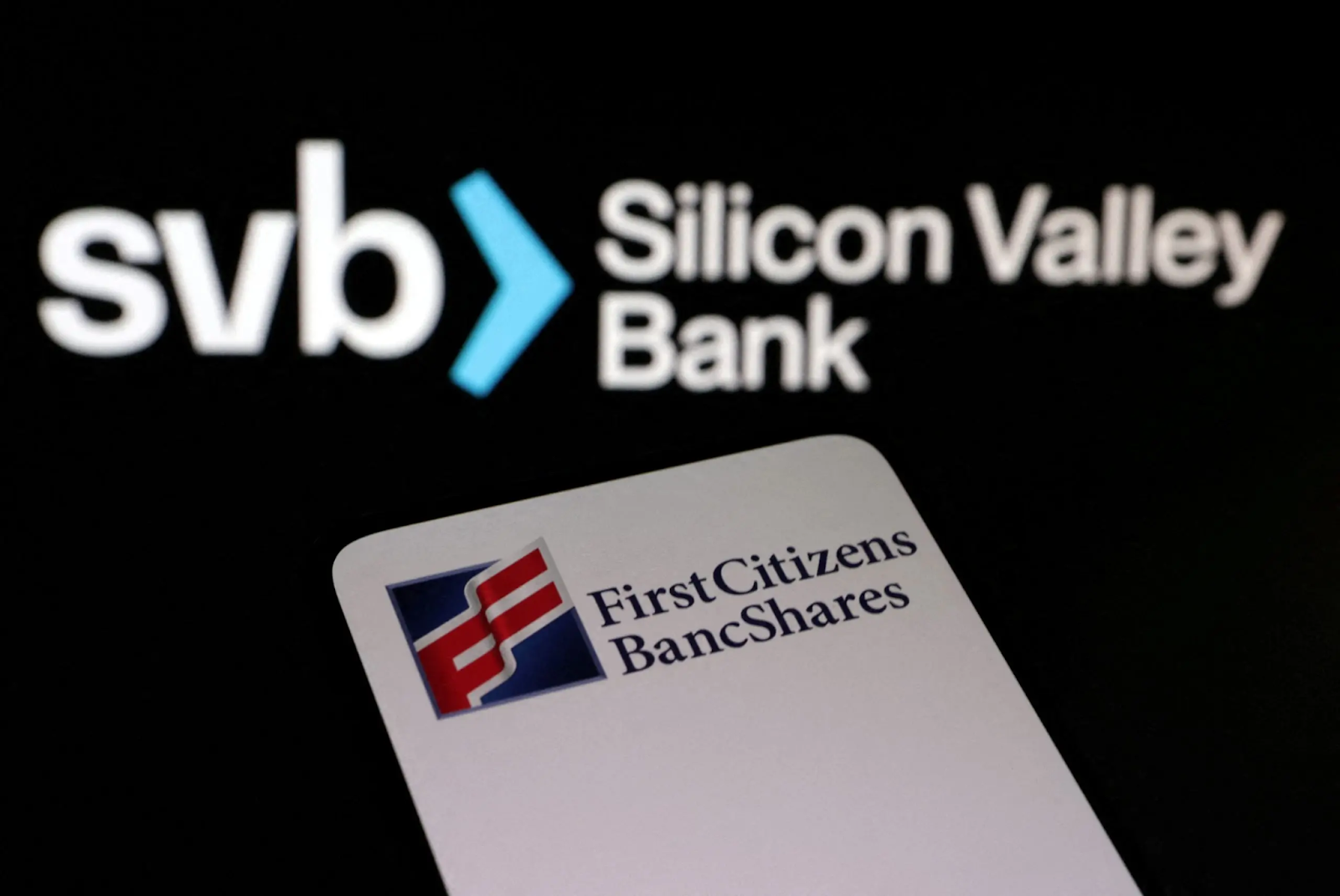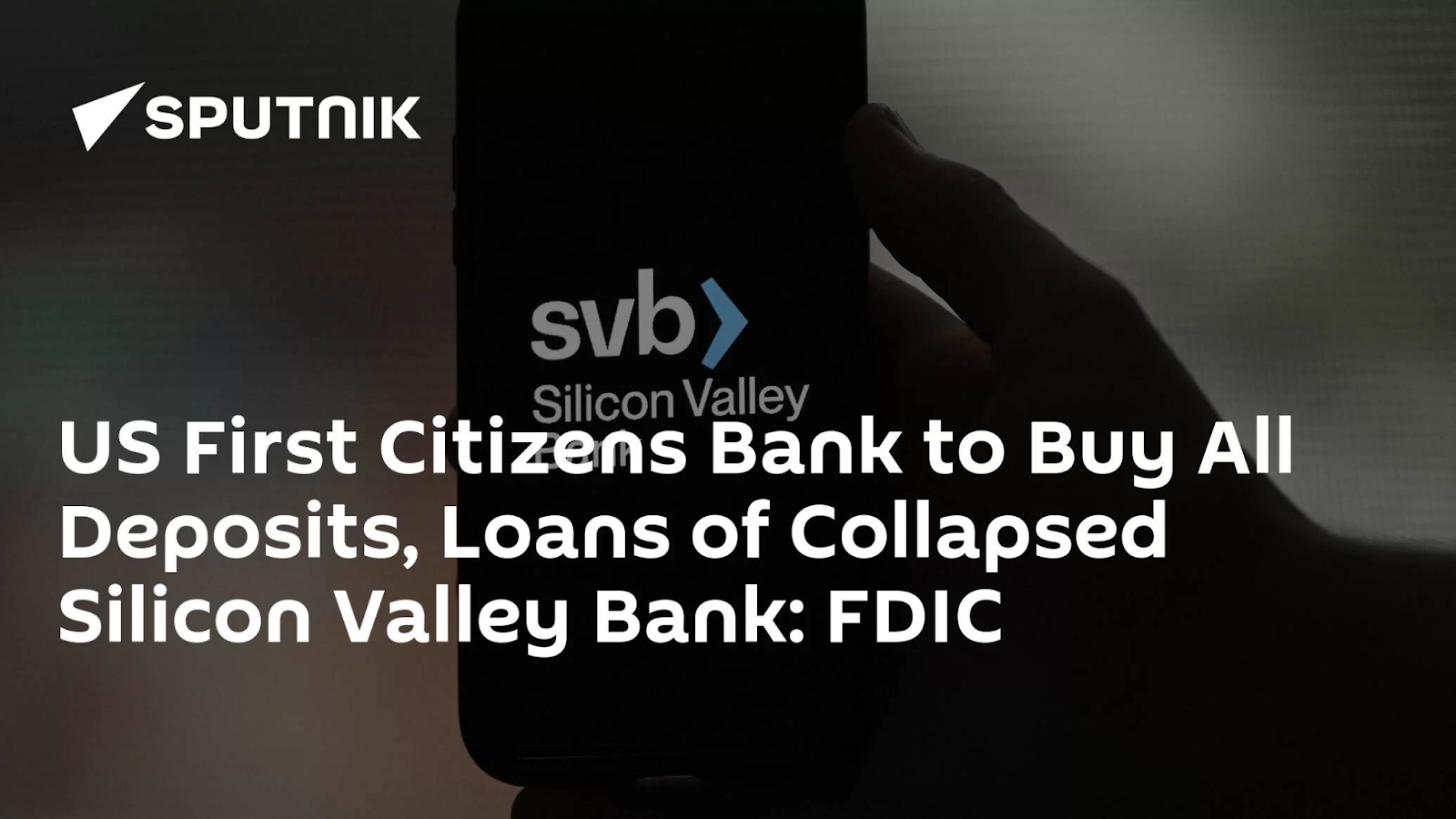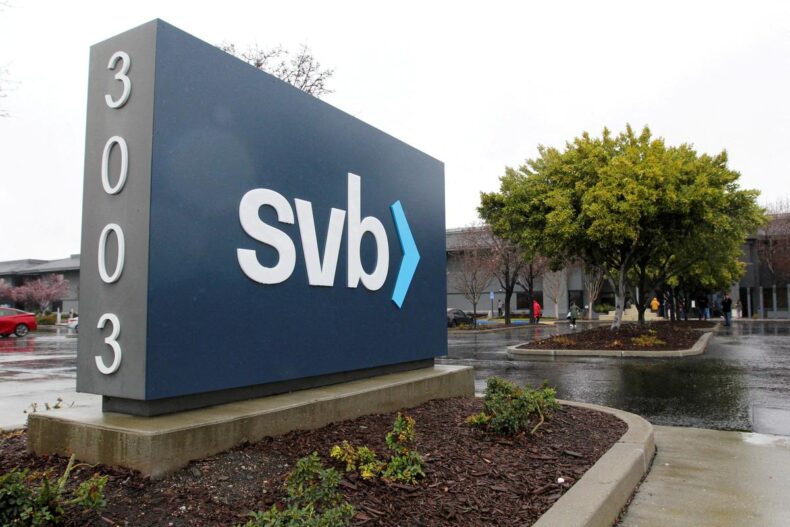Silicon Valley Bank (SVB) was acquired by First Citizens on monday.
First Citizens BancShares Inc. a bank holding company based in Raleigh, North Carolina, is one of the largest banks of the US. Its primary subsidiary is First Citizens Bank. And on monday, the company bought the embattled Silicon Valley bank which was seized by the Us authorities earlier this month.
According to a statement from the US Federal Deposit Insurance Corporation (FDIC), First Citizens BancShares entered into a loss-share transaction for all deposits and loans of the SVB.
According to this agreement, the covered loans’ losses and future recovery will be divided between the FDIC and First Citizens BancShares. T By keeping the assets in the private sector, this transaction seeks to maximize asset recovery. Also, it should cause less hiccups for loan consumers.

SOURCE- FORBES
Official Statement On Silicon Valley Bank (SVB) Acquisition
The following information concerning the takeover was given by the US Federal Deposit Corporation (FDIC).
The assets of Silicon Valley Bridge Bank, National Association are being purchased by first citizens for $72 billion at a $16.5 billion discount. A total of $90 billion in securities and other assets will still be under receivership for the FDIC to sell. Moreover, First Citizens BancShares common stock worth $500 million in equity appreciation rights were given to the FDIC.
The report also mentioned that all the previous branches of SVB will now be renamed to function as First Citizens Bank & Trust Company.
The statement also said that until further notice from First Citizens BancShares regarding the system conversions, SVB customers must avail the bank’s services from their current branches.
The beleaguered SVB’s depositors will immediately become depositors of First Citizens BancShares, the FDIC stated, while the deposits assumed in this procedure are fully guaranteed by the FDIC.It is currently estimated that the bankruptcy of Silicon Valley Bank has cost the deposit insurance fund (DIF) of the bank a loss of almost $20 billion. The SVB had around $167 billion in total assets and about $119 billion in total deposits.

SOURCE- SPUTNIK
GOOD START
When SVB collapsed earlier this month, it set off a chain reaction of other mid-size banks to fail, testing the health of global banking systems across the world. There were Signature Bank failure, a stressed sale of Credit Suisse to UBS, or growing worries about Deutsche Bank are all possible causes of a worldwide contagion effect that might eventually affect Indian lenders.
In India, the government and banking institutions were on high alert for an impending crisis. FM Nirmala Sitaraman even called for advisory meetings with public sector banks.
SERIES OF EVENTS
Silicon Valley Bank, situated in Santa Clara, California, failed after clients raced to withdraw money out of concern for the bank’s stability after a depositor’s run became public on March 10.It was the second-largest bank failure in American history after Washington Mutual in 2008. With the third-largest bank failure in American history, regulators seized New York’s Signature Bank two days later. After Washington Mutual’s failure in 2008, it was the second-largest bank failure in American history. Two days later, New York’s Signature Bank was seized by regulators in the third-largest bank failure in the U.S.

First Citizen Bancshare has kept in touch with the FDIC ever since. Although the search for a buyer for SVB took longer, New York Community Bank and Signature Bank agreed to buy a sizable portion of the latter last week in a $2.7 billion deal.
Depositors were able to retrieve their money in both situations because the government agreed to pay for deposits, even those that were higher than the $250,000 threshold for federal insurance.
All of Silicon Valley Bank’s savings and loans are sold to First-Citizens Bank and Trust Co. as part of the sale of SVB.













